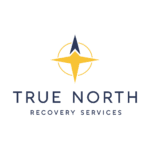When addiction intersects with family law, parents face one of their greatest fears: losing custody of their children. The relationship between substance abuse and child custody decisions is complex, with courts carefully balancing parental rights against children’s safety and well-being. Recovery from addiction doesn’t automatically restore custody rights, but it opens pathways for reunification when parents demonstrate sustained sobriety and commitment to their children’s best interests. Understanding what courts evaluate during these proceedings is crucial for parents navigating the intersection of recovery and family law.
How Does Addiction Impact Child Custody Decisions?
The Best Interest Standard
Courts across all states use the “best interest of the child” standard when making custody determinations. This means judges evaluate whether parental substance use affects a child’s academic, social, and family functioning, as well as the child’s safety and well-being. The court considers multiple factors beyond addiction, including:
- Child’s physical and emotional safety
- Stability of the home environment
- Parents’ ability to provide basic needs
- Quality of parent-child relationship
- Child’s preferences (age-appropriate)
Types of Substance Abuse Cases
Family courts encounter various addiction-related custody scenarios:
Active Addiction Cases
- Parents currently using substances
- Immediate safety concerns for children
- Emergency custody modifications
- Court-ordered treatment requirements
Recovery-Based Cases
- Parents in treatment programs
- Completed rehabilitation efforts
- Custody modification requests
- Supervised visitation arrangements
Can You Lose Custody Due to Substance Abuse?
Yes, parents can lose custody or have visitation restricted due to substance abuse. Courts may determine custody loss when drug misuse hinders a parent’s ability to care for their child. However, the severity of consequences depends on several factors:
Factors Influencing Custody Loss
| Factor | Impact on Custody |
|---|---|
| Active vs. Past Use | Current use poses immediate risk; past use with recovery shows progress |
| Type of Substance | Illegal drugs vs. alcohol: severity varies by substance |
| Impact on Parenting | Direct effects on childcare ability and safety |
| Treatment Participation | Voluntary treatment demonstrates responsibility |
| Criminal Activity | Drug-related charges compound custody concerns |
Immediate vs. Long-term Consequences
Immediate Actions Courts May Take:
- Emergency custody removal
- Supervised visitation only
- Mandatory drug testing
- Court-ordered treatment
- Safety plans implementation
Long-term Considerations:
- Permanent custody modification
- Parental rights termination (severe cases)
- Gradual custody restoration with recovery
- Ongoing monitoring requirements
What Do Courts Look for in Addiction Recovery?
Evidence of Sustained Recovery
Courts typically prefer to see that a parent has completed a rehabilitation program before discussing custody. Key recovery indicators include:
Treatment Completion
- Inpatient or outpatient program completion certificates
- Consistent therapy attendance records
- Medical documentation of treatment progress
- Professional treatment provider testimonials
Sobriety Documentation
- Clean drug test results over extended periods
- Participation in support groups (AA, NA, SMART Recovery)
- Sponsor relationships and accountability measures
- Employment stability and responsible behavior
Timeline Expectations
Recovery timelines vary, but courts generally expect:
- 30-90 days: Initial sobriety period with supervised visits
- 6-12 months: Extended sobriety demonstration for increased visitation
- 12+ months: Consideration for custody modification requests
- Ongoing: Continued monitoring and compliance requirements
How Can Parents in Recovery Regain Custody?
The Custody Modification Process
Parents may go back to court and request more parenting time based on evidence that they’re in stable recovery and ready to take good care of their children. The process involves:
Step 1: Demonstrate Substantial Change
- Prove meaningful life changes since the last custody order
- Document sustained recovery efforts
- Show improved parenting capacity
- Gather supporting evidence and testimony
Step 2: File Legal Motion
- Petition for custody modification
- Present the evidence package to the court
- Schedule hearings and evaluations
- Work with a family law attorney
Step 3: Court Evaluation
- Home studies and safety assessments
- Child interviews (age-appropriate)
- Professional evaluations and recommendations
- Guardian ad litem involvement if needed
Building a Strong Case
Essential Documentation:
- Treatment completion certificates
- Drug test results (consistent clean screens)
- Employment records and financial stability
- Housing stability and safety assessments
- Character references from treatment providers
- Evidence of community involvement and support
Professional Support Team:
- Addiction treatment counselors
- Mental health professionals
- Recovery sponsors and peer support
- Family law attorneys specializing in custody
- Child welfare advocates
Common Questions About Child Custody and Addiction Recovery
Will I lose custody if I go to rehab?
No, seeking treatment typically demonstrates responsibility rather than creating custody loss. Seeking professional help for addiction often demonstrates responsibility and a commitment to providing a healthier life for both you and your children. Many parents fear that entering treatment will result in losing their children, but proactive treatment often works in parents’ favor during custody proceedings.
Can a recovering alcoholic get full custody?
Yes, recovering alcoholics can regain full custody with sustained sobriety and demonstrated parenting capacity. While laws protect people in recovery from bias, the family court has to balance being fair to an adult in recovery with a child’s best interest. The key is showing long-term recovery commitment and stable parenting ability.
How long does recovery need to be before custody restoration?
Most courts expect 12-18 months of documented sobriety before considering significant custody changes. However, supervised visitation may begin much earlier with consistent treatment participation and clean drug tests. Each case depends on:
- Severity of previous addiction
- Quality of the recovery program
- Consistency of sobriety maintenance
- Child’s specific needs and preferences
- Other parents’ custody situation
What happens if I relapse during custody proceedings?
Relapse during custody cases typically results in setbacks but doesn’t permanently end custody hopes. Courts understand addiction is a chronic condition, but they prioritize child safety. Consequences may include:
- Return to supervised visitation
- Additional treatment requirements
- Extended monitoring periods
- Delayed custody modification hearings
The key is immediate honesty with the court and renewed commitment to treatment.
Legal Protections for Parents in Recovery
Anti-Discrimination Laws
Parents in recovery have legal protections against discrimination, but these must be balanced with children’s welfare:
Americans with Disabilities Act (ADA)
- Protects against discrimination based on addiction history
- Applies to those in recovery, not active addiction
- Requires courts to consider individual circumstances
State-Specific Protections
- Vary by jurisdiction
- May include rehabilitation preferences
- Focus on current parenting capacity over past addiction
Working with Family Courts
Best Practices for Court Interactions:
- Complete honesty about addiction history
- Proactive treatment participation
- Consistent compliance with court orders
- Professional legal representation
- Focus on children’s best interests
Avoiding Common Mistakes:
- Minimizing addiction severity
- Incomplete treatment participation
- Missing drug tests or court dates
- Adversarial approach with the other parent
- Unrealistic timeline expectations
Supporting Children Through the Process
Age-Appropriate Communication
Parents must help children understand custody changes without burdening them:
Young Children (Ages 3-7)
- Simple explanations about “getting better”
- Reassurance about love and safety
- Consistent routines during transitions
- Professional counseling support
School-Age Children (Ages 8-12)
- More detailed addiction education
- Emphasis on treatment as healthcare
- Open communication about fears
- Family therapy participation
Teenagers (Ages 13-18)
- Honest discussions about addiction
- Involvement in appropriate recovery activities
- Respect for their custody preferences
- Independent counseling opportunities
Minimizing Trauma
Recovery and custody proceedings can be traumatic for children. Parents should:
- Prioritize children’s emotional needs
- Avoid exposing children to court conflicts
- Maintain positive relationships with other parents when possible
- Seek professional child therapy services
- Create stable, predictable environments
The Role of Treatment Programs in Custody Cases
Court-Ordered vs. Voluntary Treatment
Court-Ordered Treatment:
- Mandated by a judge during custody proceedings
- Specific program requirements and duration
- Regular progress reporting to the court
- Compliance affects custody decisions directly
Voluntary Treatment:
- Self-initiated before or during the custody case
- Demonstrates personal responsibility and commitment
- Often viewed more favorably by courts
- Shows genuine desire for recovery and better parenting
Types of Programs Courts Recognize
Inpatient Treatment
- 30-90 day residential programs
- Intensive medical and therapeutic intervention
- Complete environmental separation from triggers
- Highest level of care demonstration
Outpatient Programs
- Intensive outpatient (IOP) 9+ hours per week
- Standard outpatient 3-6 hours per week
- Allows maintenance of work and family responsibilities
- Flexible scheduling for custody arrangements
Specialty Courts
- Drug courts with treatment integration
- Family treatment courts
- Specialized custody and addiction programs
- Enhanced monitoring and support services
How True North Recovery Services Supports Parents in Custody Cases
At True North Recovery Services, we understand the unique challenges parents face when navigating addiction recovery while maintaining relationships with their children. Our comprehensive outpatient treatment programs in the Denver Metro Area are designed to support parents through every stage of recovery and custody proceedings. We offer evidence-based treatments for opioid use disorder, alcohol use disorder, and other substance use disorders, combined with mental health support services that help parents develop the skills needed for successful recovery and effective parenting. Our compassionate care team works with clients to create flexible treatment plans that accommodate custody schedules while ensuring consistent progress toward lasting recovery.
Moving Forward: Hope and Healing in Recovery
Long-term Success Strategies
Parents in recovery can build lasting custody relationships through:
Sustained Recovery Commitment
- Ongoing treatment and support group participation
- Regular medical and mental health care
- Healthy lifestyle choices and stress management
- Continued personal growth and development
Positive Parenting Development
- Parenting classes and skill development
- Consistent, loving interactions with children
- Age-appropriate activities and involvement
- Collaborative co-parenting when possible
Community Support Systems
- Recovery community involvement
- Family and friend support networks
- Professional ongoing care relationships
- Mentorship and sponsorship connections
Creating Stable Futures
Recovery opens doors to rebuilding family relationships and restoring custody rights. Parents who demonstrate sustained sobriety, consistent treatment participation, and genuine commitment to their children’s well-being often find courts increasingly supportive of expanded custody arrangements.
The journey from addiction through recovery to custody restoration requires patience, commitment, and professional support. While the legal system prioritizes child safety above all else, it also recognizes the value of healthy, recovered parents in children’s lives. Success depends on honest acknowledgment of past problems, sustained commitment to recovery, and unwavering focus on children’s best interests throughout the process.
Parents facing these challenges should remember that recovery is possible, families can heal, and custody rights can be restored with time, effort, and appropriate support. The intersection of addiction recovery and family law is complex, but with proper guidance and genuine commitment to change, parents can rebuild their lives and relationships with their children.
If you or someone you know is struggling with addiction and custody concerns, professional help is available. Contact True North Recovery Services at (720) 669-6793 or visit our Denver location to learn about our comprehensive outpatient treatment programs designed to support parents in recovery.


